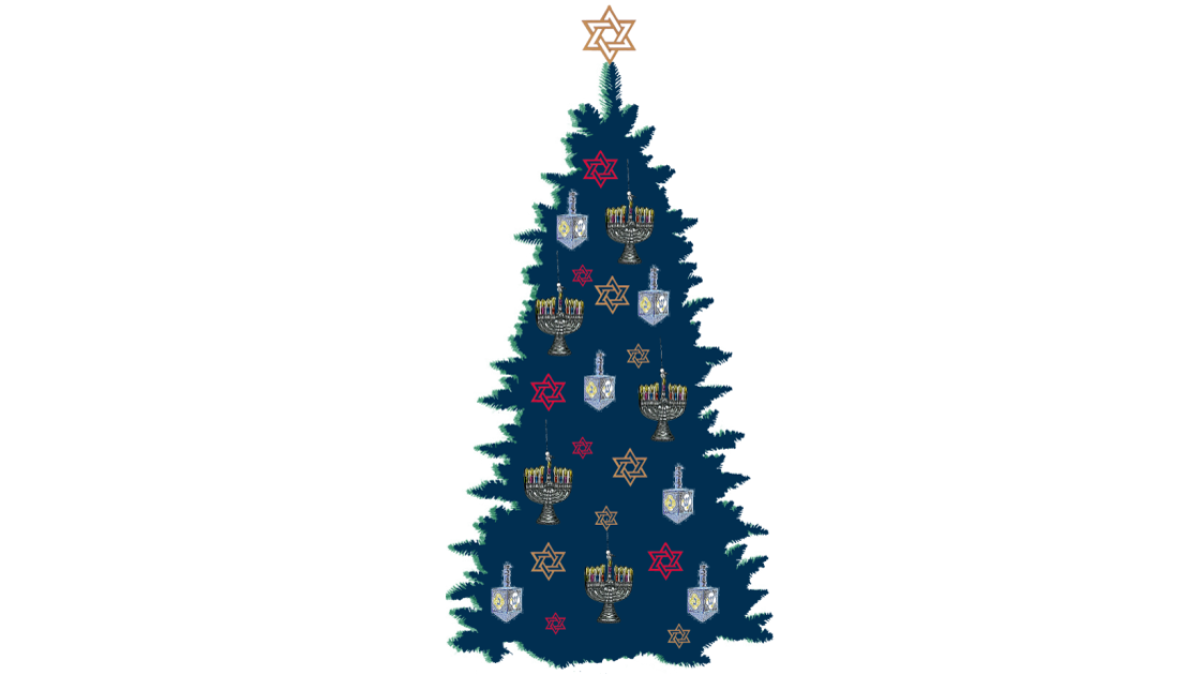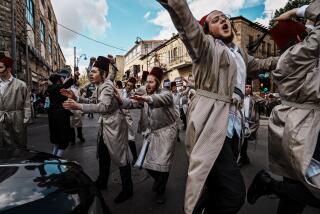Op-Ed: It’s beginning to look a lot like 24 hours of freedom

I have a long and complicated history with Christmas. Most Jews do. As a kid, I felt the pangs of being shunned by Santa. I yearned to climb onto his lap at the department store and tell him my darkest consumer desires, but my mother always said no.
In my early 20s I married a non-Jew, and while she never said she wanted a tree, I think a tree would have made her very happy. Even a tree decorated without Christian religious symbols — a holiday tree, a large house-plant type tree. Did I consider it? Did I take a hint? No. I was an anti-Christmas tree fanatic. I didn’t always fast on Yom Kippur or keep the Sabbath or even go inside a synagogue for years at a time. I might not have known what to embrace as a conflicted secular Jew but I knew what to avoid: conifers.
Other Jews around me were falling fast. Friends of mine, liberal Reform Jews I had grown up with, suddenly had Christmas trees. I couldn’t understand it. To me, it was just something you don’t get when you’re a Jew. Like snow in Florida.
Today, 1 in 3 Jews has a Christmas tree, according to a recent Pew Research Center poll. One in three. I still don’t. I like being different. I like the outsider status that not celebrating Christmas gives me. Don’t get me wrong, I think it’s a beautiful holiday. And I don’t want it neutered. I’m fine with Christmas trees on public grounds.
Although I’m a big fan of the separation of church and state, I’m not happy when well-meaning groups sue cities to make sure local governments give equal time to Hanukkah. Hanukkah can’t hold a menorah to Christmas. Hanukkah is a second-tier Jewish holiday. It doesn’t even crack the top five, coming in behind Rosh Hashanah, Yom Kippur, Passover and two agricultural holidays, Shavuot (the celebration of the first fruit crop) and Sukkot (a weeklong festival where we give thanks for the harvest).
Hanukkah just isn’t that big a deal. It’s not even mentioned in the Torah. The miracle we’re marking here — that a single day’s worth of oil burned for eight days — doesn’t compare with the birth of God’s son. Hard to even call it a miracle. More of a pleasant surprise, really.
Then there’s the music. On one side of the jukebox, we have “White Christmas,” “Jingle Bell Rock,” “You’re All I Want for Christmas,” “Santa Baby,” “I Saw Mommy Kissing Santa Claus.” If there was a selection on the other side of the jukebox, it would be “The Dreidel Song.” That’s pretty much it, unless you count Adam Sandler’s irreverent contribution to the musical canon.
The dreidel is such a horrible toy, it’s surprising that it inspired a song. Of course, when you consider the lyrics, “inspire” is a stretch. Every Hanukkah, little Jewish kids sit down to play the dreidel game. And I use the word “game” lightly. An adult usually tries to explain the rules. The dreidel contains four Hebrew letters, one on each side of this four-sided top. If it lands on one letter, you win. If it lands on another letter you have to put in a chip or a coin or an M&M — whatever the table stakes are. And so on. The adult usually gets through explaining the second letter when one kid, who can’t contain his excitement, spins the dreidel wildly. It goes off the table. The next kid spins it, also off the table. And that’s it. They go back to playing with their other toys.
Except, if it’s the first through seventh night and your family is like my family, you might be playing with socks or a shoehorn. That’s right. One year, I got a shoehorn. I was about 8. I’m pretty sure it was the kind they gave your father when he bought a
pair of shoes. A promotional item, wrapped up and masquerading as a gift. That’s the thing about Hanukkah. It was never meant to be a gift-giving holiday. That was a retrofit, a misguided attempt to make little Jewish kids feel better about not celebrating Christmas.
But there is one gift Christmas bestows on Jews and others who don’t celebrate it: We get a totally free day, 24 hours with no expectations, no commitments. To me, that’s a pretty nice trade-off.
Jim Sollisch is a creative director at a Cleveland advertising agency whose essays are frequently published by newspapers.Follow the Opinion section on Twitter @latimesopinion
More to Read
A cure for the common opinion
Get thought-provoking perspectives with our weekly newsletter.
You may occasionally receive promotional content from the Los Angeles Times.






